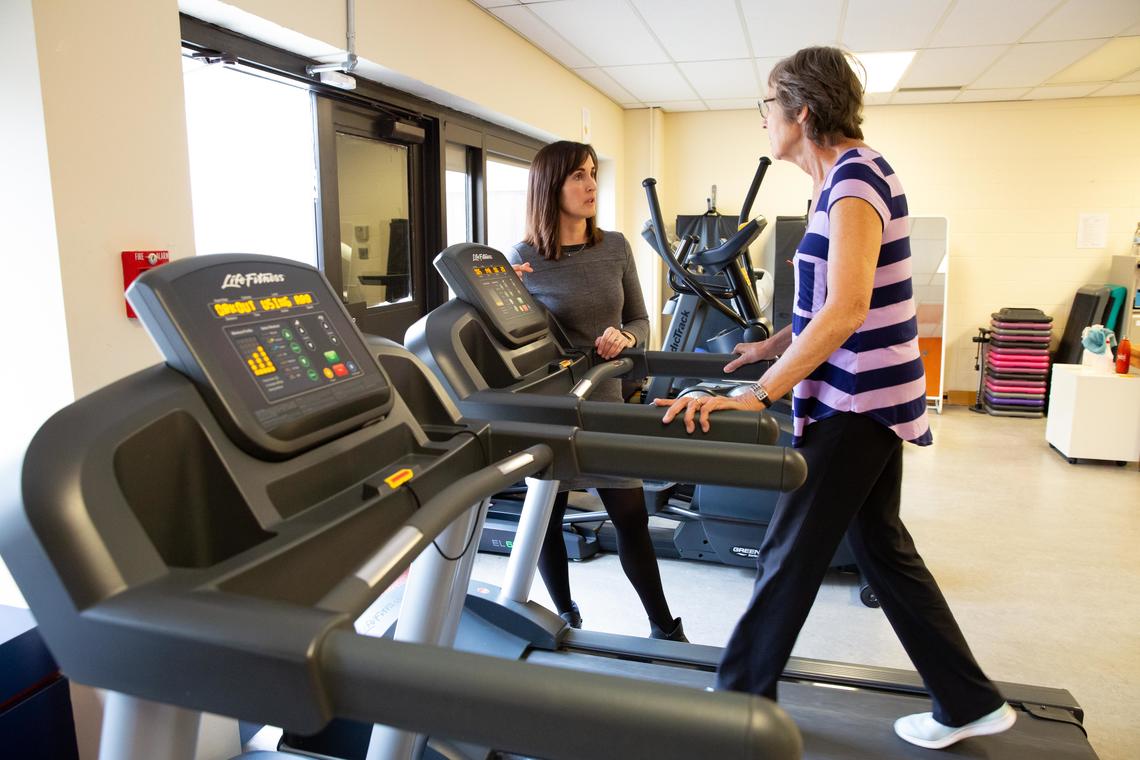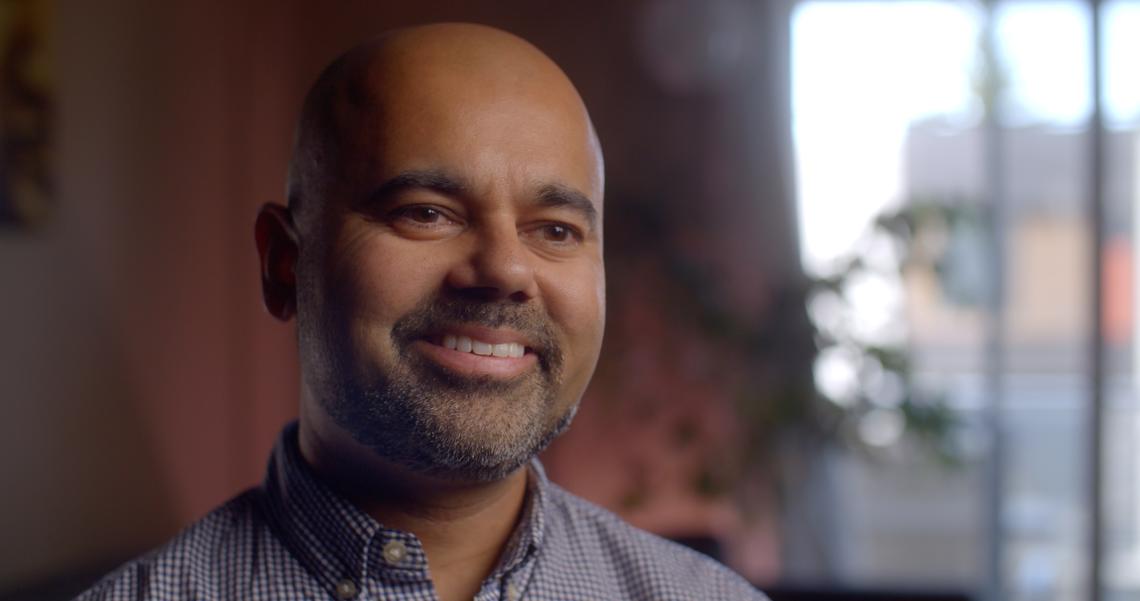Dec. 1, 2020
Researcher’s work to increase exercise among cancer survivors expands across Canada

An Alberta research project designed to increase physical activity levels in cancer survivors is going national, following its local success.
Project EXCEL, led by Dr. Nicole Culos-Reed, PhD, a member of the O’Brien Institute for Public Health, is funded by the Canadian Institutes of Health Research (CIHR), Canadian Cancer Society (CSS), and Alberta Cancer Foundation. The study aims to increase levels of physical activity in cancer survivors who live in rural areas. By providing access to physical activity programming via EXCEL, participants may improve their fitness and overall well-being, enhancing their quality of life.
- Photo above: Project EXCEL, led by Nicole Culos-Reed, aims to increase levels of physical activity in cancer survivors who live in rural areas.
This new initiative stems from the Alberta Cancer Exercise (ACE) program, which included more than 2,300 participants over the last four years.
Unfortunately, access to these types of programs has been primarily limited to those living with cancer in major urban centres. Those living with cancer in rural settings don’t often have access to the same programs, says Culos-Reed.
“If you're living with cancer in a smaller town, you might come into the city for treatments, but you don’t come in for anything else and there's no oncology wellness resources where you are, so it was critical for us to expand the reach of our program,” says Culos-Reed.
“Based on work to date, we expect that patient-reported benefits will include improvements in cancer-related fatigue, improved emotional well-being and enhanced overall quality of life. In addition, we know that exercise improves functional well-being and measures of fitness, such as strength, aerobic fitness, flexibility, and balance.”
The project is expanding into Nova Scotia starting in December — and rolling out in other provinces across Canada in 2021.
“We're being very ambitious because there's just so much evidence that exercise must be part of standard care," says Culos-Reed. "It's just time. We can't keep not delivering on this. We want to build things that can really change the face of cancer care and integrate wellness right into that journey from the get-go.”

Project EXCEL stems from the Alberta Cancer Exercise (ACE) program, which included more than 2,300 participants over the last four years.
Project EXCEL includes an online component to reach people living in rural areas, along with the inclusion of fitness trainers delivering programs in their local community. Due to the ongoing COVID-19 pandemic, researchers have moved to an entirely online program. Culos-Reed says the upside to this is increased reach and accessibility.
Patient-centred app enables collection of data
Participants in the study will use the ZoeInsights app, designed by Calgary-based Hanalytics Solutions, to support behaviour changes through reminders. The app will also help researchers collect real-world patient-reported outcome measures (PROMS) including fatigue, pain, mood, and well-being.
Culos-Reed and Hanalytics co-founder Shaneel Pathak were first introduced through the Alberta Cancer Foundation in 2019, one of the startup’s first partners.

Hanalytics Solutions co-founder Shaneel Pathak
“We knew it was a good fit from the beginning because our values are very similar," says Pathak. "We want to help people through their cancer journey and improve the quality of life, but at the same time serve researchers."
The app acts as a virtual binder, providing one place to record health symptoms, doctor’s notes and reports. Pathak created the app following his wife’s diagnosis with metastatic lung cancer.
“That introduced us to a world of information chaos, and how we had to repeat our story all the time,” he says.
While the app was initially designed to support patients, the outcomes gathered brought the company into the world of research. The app promises to provide unprecedented population-level insights.
“We designed it so that it's patient-centred, and patients control all the data, but researchers get a large, more robust dataset than they could traditionally, and in near real time.”
Project EXCEL is funded by the Canadian Cancer Society/CIHR’s Cancer Survivorship Team Grant Funding and the Alberta Cancer Foundation from 2020 to 2025 for $2.5 million.
Alberta Cancer Exercise (ACE) program, has been funded by Alberta Innovates and Alberta Cancer Foundation for the past four years.
ACE is co-led by Dr. Margie McNeely, PhD, a professor in the Department of Physical Therapy at the University of Alberta, and Culos-Reed, a professor in the Faculty of Kinesiology, University of Calgary, and an adjunct professor, Department of Oncology, Cumming School of Medicine, a member of the O’Brien Institute for Public Health and the Alberta Children’s Hospital Research Institute.





